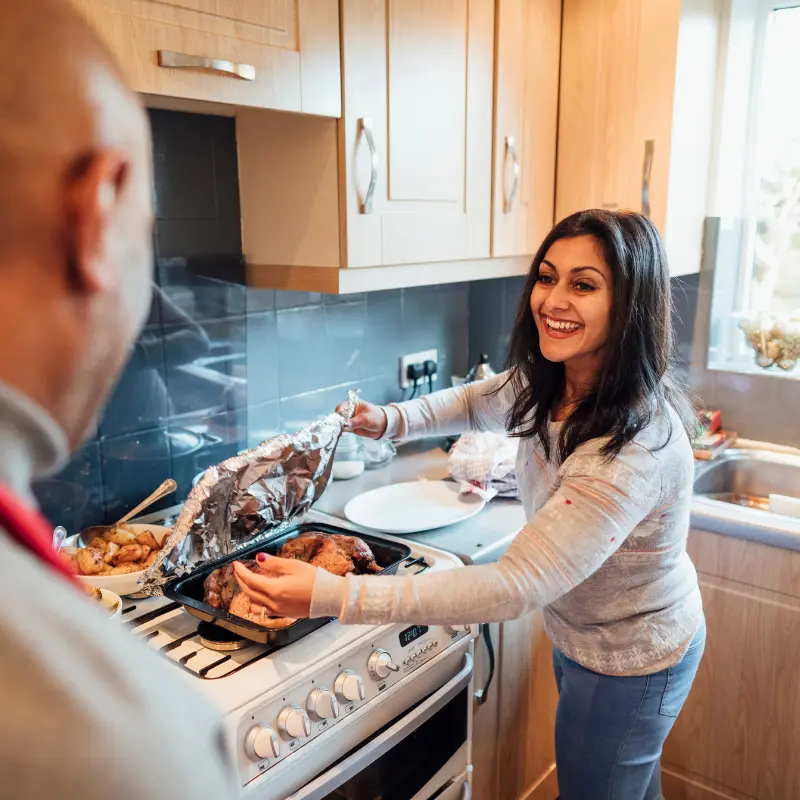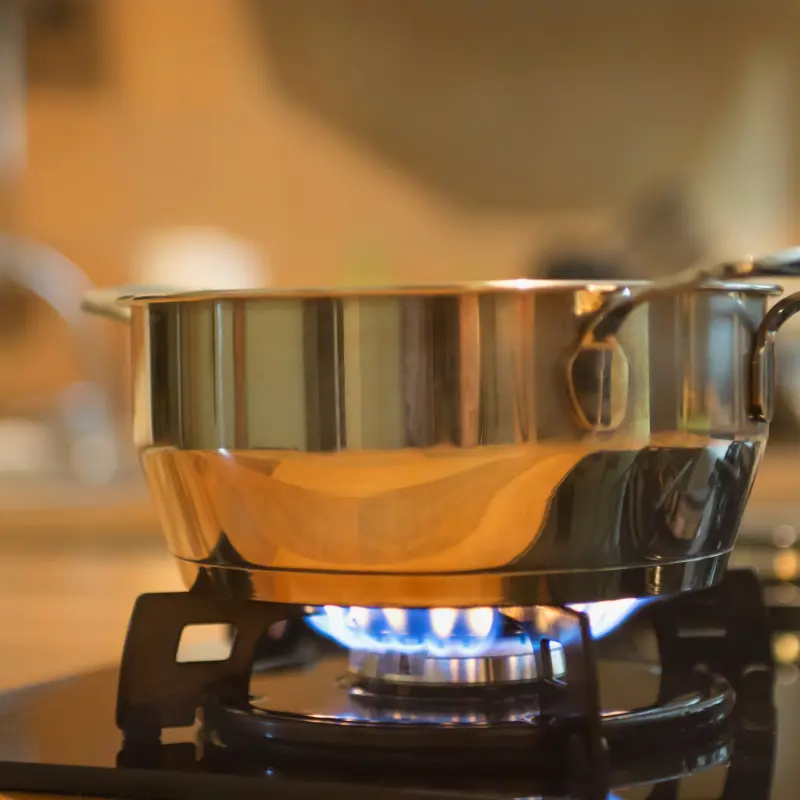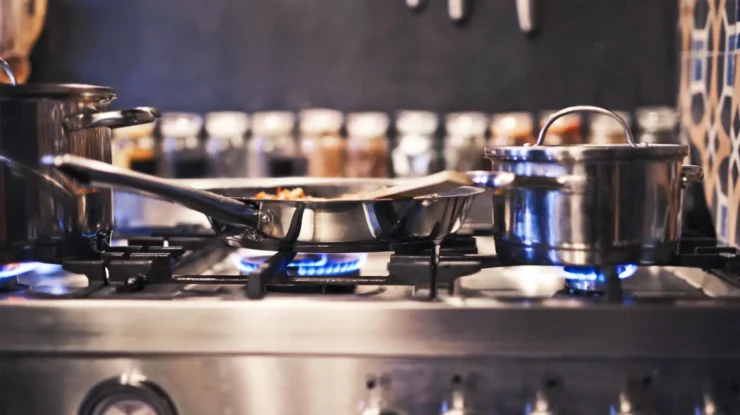In early 2023, a Twitter-storm erupted over a report that natural gas stoves in homes should be banned. While that’s not happening nationally, it’s important to understand the pros and cons of natural gas stoves and ovens, and how to use them safely at home.
Background: Natural Gas Stove Ban
The idea of a natural gas stove ban in the US came about due to an almost off-hand comment by a member of the U.S. Consumer Product Safety Commission.
The suggestion of a natural gas stove ban was triggered by two studies on the safety of natural gas stoves for in-home use.
- The first study, from researchers at Harvard, was released in June 2022. They found that natural gas additives could be more toxic than previously thought. The study also found that stoves were likely to be leaking harmful pollutants into the air.
- The second study in January 2023 concluded that 12.7% of childhood asthma cases in the US could be attributed to gas stove use.
While that was quickly walked back, there was quite a lot of chatter in the news media and Twitterverse.
So what is all the chatter about? And are these stoves dangerous? To understand this, first we’ll talk about the pros and cons of natural gas stoves.
What states have banned natural gas stoves? New York has banned natural gas appliances in new construction after 2025. In California, 75 cities have banned gas appliances in new construction. Washington state passed a law in 2021 banning all natural gas appliances in new commercial and multi-family buildings as of July 2023. Bans on natural gas appliances cite health concerns such as the increased risk of childhood asthma cases.

What are the Pros and Cons of Natural Gas Stoves?
Let’s talk about the cons and then the pros of natural gas stoves. Because we first want to tell you why people are concerned about them.
Cons of Natural Gas Stoves
- Con number one for natural gas stoves? The risk of poisonous or noxious gases.
Natural gas appliances can emit benzene at levels similar to second hand smoke. They also release carbon monoxide, formaldehyde and nitrogen dioxide.1
That’s why you should always run your ventilation hood fan when cooking on your gas stovetop or oven. That vent hood removes gases that are emitted while you’re cooking. (It’s not just for when you burn something in the oven or are cooking fish.)
- Con number two for natural gas stoves? The cost of natural gas appliances.
Running natural gas into your kitchen can be an added cost. Plus the upfront cost of purchasing a natural gas stove and oven is higher than their electric equivalent.
How common are natural gas stoves in homes? According to the Energy Information Administration (EIA), approximately 38% of U.S. homes have gas stoves in their kitchen.
Pros of Natural Gas Stoves
So given these cons, why would anyone buy a gas stove?
- Pro reason number one for natural gas stoves is their precise, instant and even heating.
These stoves are loved by foodies and cooking aficionados everywhere because of how they operate.
Natural gas stoves and ovens offer immediate temperature control, so you can adjust the heat quickly and accurately while cooking. Gas burners also provide even heat distribution, resulting in more consistent cooking and baking results.
- Pro reason number 2 for natural gas stoves is their cost effectiveness.
Natural gas is a cheaper heating sources than electricity.
- Pro reason number 3 for natural gas appliances is their reliability during power outages.
Your natural gas stove can continue to operate during power outages, so you can still cook and bake when the power is out.

How to Use Your Natural Gas Stove Safely in the Kitchen
While natural gas is generally considered safe, there is a risk if the appliances or gas lines are not properly maintained. Regular inspection and maintenance are necessary to ensure safety.
Here are 6 ways to make sure you can safely use your gas stove at home.
- Always use your ventilation hood exhaust fan when cooking.
- Use the back burners. These are more easily vented by the exhaust fan.
- Don’t use the self-cleaning option on your gas stove. If you must use it, put the exhaust fan on.
- Make sure the air vent holes in the bottom of your gas oven are not blocked. That means no tin foil!
- Check the flame. Your natural gas stove should always have a blue flame. If it’s burning yellow, that means that the amount of air mixing with natural gas is off, and you should have your stove checked.
- Install a carbon monoxide detector in your kitchen.
Did you know? Your over-the-stove ventilation fan has a filter, just like your air conditioner. Clean or replace this every 3 months for best performance.
Want to change your stove from natural gas to electricity? You could receive a tax credit up to $840 if you switch to an induction stove. To qualify for these electrification rebates, you must earn under 150% of the median income in your area.
For example, a a household income of $154,350 or less in Atlanta Georgia can qualify.
Footnotes
